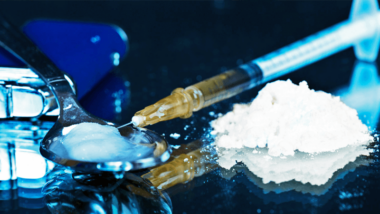Prescribing methadone for heroin addiction in prisons is to be replaced by “abstinence-based methods”, the Justice Secretary Dominic Raab has announced.
The new measures are proposed in the Prisons Strategy White Paper for England and Wales for tackling drug addiction in the prison population.
In a review carried out for the Government, Professor Dame Carol Black said one in three prisoners had a serious addiction problem.
‘Harm reduction’ failing
Speaking prior to the launch of the White Paper, Raab told the Justice Committee that “too many offenders are, effectively, placed on methadone and other opiate substitutes” in an attempt to reduce harm, rather than assist recovery.
“But”, the Justice Secretary continued, “methadone is harder to get off than heroin. It is more addictive than heroin.
“You have to ask yourself, if they are staying on it indefinitely, how much that is driving towards recovery.”
The approach in prisons, he said, needed to change to one that focused on “ending the addiction dependency” not “replacing it”.
‘Drug-free lives’
In his foreword to the White Paper, Raab promised the Government would bring in a full range of drug treatments, “including abstinence-based methods, to support more prisoners to address their addictions”.
The long-term vision strategy for prisons outlined in the document includes a ‘zero tolerance’ approach to drugs and aims to rebuild “drug-free lives” through providing treatment that helps inmates move “towards abstinence” throughout their time in the system and beyond.
Julie Muir, a director at Forward Trust which runs a successful prison abstinence service, told The Daily Telegraph: “Abstinence-based programmes are an important part of the support we offer to manage and mitigate the damaging effects of addiction.”
She added: “As a society we need to do more to ensure everyone has the opportunity of recovery, no matter who they are.”
Police Commissioner wants ‘cannabis for convicts’
Scot Govt under fire for pursuit of ‘harm reduction’ drugs policy


